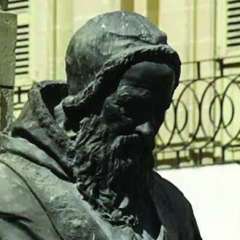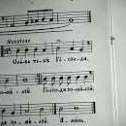Претражи Живе Речи Утехе
Showing results for tags 'saint'.
Found 34 results
-

Francesco Forgione - Saint Pio of Pietrelcina
тема је објавио/ла Bernard у Dijalog sa braćom rimokatolicima
- 56 нових одговора
-
- pietrelcina
- pio
-
(и још 3 )
Таговано са:
-

Relics of Orthodox Saint Nektarios Stolen from Greek Church
тема је објавио/ла Danijela у Зона сумрака
Relics of Agios Nektarios, which were kept in a special casket in front of his icon, in the Church of Agios Nektarios, in the village of Platanitis in central Greece, were stolen on Thursday. The thieves broke into the church in the middle of the night and, for an unknown reason, removed the holy relics which are visited and revered by thousands of Orthodox faithful every year. Nektarios, born in the mid-nineteenth century and died in the early twentieth century. Born in Selyvria, Thrace (part of present day Turkey), in October of 1846 as Anastasios Kephalas, Nektarios (his ordained name) began working and studying in Constantinople at the age of 14. In 1904 at the request of several nuns, he established a monastery for them on the island of Aegina. The monastery was then named Holy Trinity Monastery. In December of 1908, at the age of 62, Nektarios withdrew to the monastery on Aegina, where he lived out the rest of his life as a monk. He wrote, published, preached, and heard confessions from those who came from near and far to seek out his spiritual guidance. Thousands of miracles have been attributed to his intercession, with cases of cancer in particular, and other serious illnesses being totally cured. Nektarios died on the evening of November 8, 1920, at the age of 74. He was buried at the Holy Trinity Monastery on Aegina. His relics were removed from the grave in 1953 and parts were given to different churches around the Greek Orthodox world. Some relics were kept at the Church of Agios Nektarios, in the village of Platanitis, from where they were stolen on Thursday. Ηe was officially recognized as a saint by the Ecumenical Patriarchate of Constantinople in 1961. His feast day is celebrated annually on November 9. https://greece.greekreporter.com/2020/07/17/relics-of-orthodox-saint-nektarios-stolen-from-greek-church/ -
-
-
-

Saint Louis-Marie Grignion de Montfort
тема је објавио/ла Bernard у Dijalog sa braćom rimokatolicima
- 2 нових одговора
-
- saint
- louis-marie
-
(и још 2 )
Таговано са:
-
Прота Бранко Цвејић тропар Светом Сави. Лајкујте видео и запратите канал, хвала.
-
- тропар
- свети сава
- (и још 10 )
-
Saint Fulgentius of Ruspe (c 462 – 533) “The Pocket Augustine” Posted on January 1, 2020 Saint of the Day – 1 January – Saint Fulgentius of Ruspe (c 462 – 533) Abbot, Bishop of the city of Ruspe, Roman province of Africa, North Africa in modern day Tunisia, Theologian, Writer- known as “The Pocket Augustine” – born Fabius Claudius Gordianus Fulgentius in c 462 at Carthage, North Africa (modern Tunis, Tunisia) and died on 1 January 533 in Ruspe of natural causes. He is venerated today and on 3 January by the Augustinians. He was born to a Roman senatorial family, and was well educated. His father Claudius, died while Fulgentius was still quite young. His mother, Mariana taught him to speak Greek and Latin. He became so good at Greek, that he spoke it like a native and committed all of Homer to memory. He was also well trained in Latin literature. As he grew older, he managed his house wisely in subjection to his mother and Fulgentius quickly gained wide respect for his conduct of the family affairs. This reputation helped him to acquire a post as a civil servant in the government of Rome, as a procurator of Byzacena. He quickly grew tired of the provincial life. This, together with his studies of religion, particularly a sermon of Saint Augustine of Hippo on Psalm 36, led to his being attracted to a religious life and he entered a monastery, became a monk, then was Ordained and became Abbot. At the time, the Arian persecutions had ceased but the election of Catholic bishops was forbidden. In 508 it became necessary to defy the law when bishops were consecrated, Fulgentius being chosen for Ruspe (modern Kudiat Rosfa, Tunisia). He was exiled with 60 other bishops to Sardinia. There they built a monastery and continued to write, pray, and study. Fulgentius was invited back to Carthage by the Arian king Thrasimund to hold a debate with his Arian replacement around 515 and so successfully refuted his Arian opponents that he was exiled again in 518. King Hilderic succeeded Thrasimund in 523 and permitted the exiles to return. Peace finally being restored to the African church, Fulgentius returned to his Diocese. He would have preferred to return to his monastery and resume his studies but he was such a popular preacher, he was kept busy in the pulpit until his death. As a Bishop, he followed Augustine’s example in living in community with the clergy of his Diocese. He founded several other monasteries in Africa. When he was exiled to Sardinia, not wanting to be away from the monastic community life, he even founded monasteries there. Various letters and eight sermons survive. Fulgentius’s work shows his vast knowledge of Greek and a strong influence and agreement with Saint Augustine, so much so, that he is known as “The Pocket Augustine.” He wrote frequently against Arianism and Pelagianism. Saint Fulgentius died of natural causes in 533 at Ruspe. Some of his relics are located at Bourges, France. St Fulgentius truly aimed to live a life in conformity with St Augustine’s precept: “Everything outside of us fluctuates with the storms and temptations of this age. But we need an interior desert, where we gather ourselves and live of our faith.” … (Sermo 47,25)
- 1 нови одговор
Све поруке на форуму, осим званичних саопштења Српске Православне Цркве, су искључиво лична мишљења чланова форума 'Живе Речи Утехе' и уредништво не сноси никакву материјалну и кривичну одговорност услед погрешних информација. Објављивање информација са сајта у некомерцијалне сврхе могуће је само уз навођење URL адресе дискусије. За све друге видове дистрибуције потребно је имати изричиту дозволу администратора Поука.орг и/или аутора порука. Коментари се на сајту Поуке.орг објављују у реалном времену и Администрација се не може сматрати одговорним за написано. Забрањен је говор мржње, псовање, вређање и клеветање. Такав садржај ће бити избрисан чим буде примећен, а аутори могу бити пријављени надлежним институцијама. Чланови имају опцију пријављивања недоличних порука, те непримерен садржај могу пријавити Администрацији. Такође, ако имате проблема са регистрацијом или заборављеном шифром за сајтове Поуке.орг и Црква.нет, пошаљите нам поруку у контакт форми да Вам помогнемо у решавању проблема.
![]() © ☦ 2021 Сва права задржана.
© ☦ 2021 Сва права задржана.


